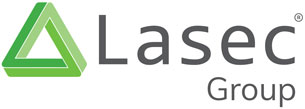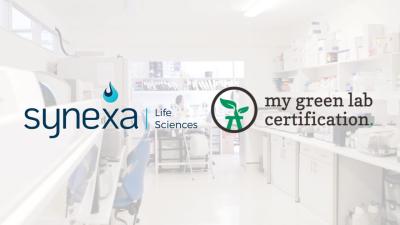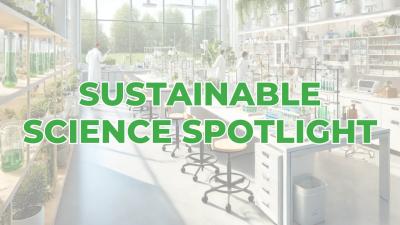Why Supplier Choices Matter in Sustainable Procurement for Laboratories

Earth Day & Sustainable Procurement: Why Supplier Choices Matter
Earth Day was celebrated worldwide on the 22nd of April, and at Lasec®, we’ve used this moment to reflect on the critical role procurement plays in creating more sustainable laboratories.
We’ve all heard the horror stories - unethical companies dumping waste, polluting water sources, or releasing unchecked carbon emissions. These activities leave lasting ecological damage that takes decades to undo. While many manufacturers are embracing sustainable practices, some still fall short, driven by short-term profits, a lack of the desire to change or merely lack of awareness. Global carbon emissions continue to rise, and unsustainable consumption remains widespread.
So why do supplier choices matter?
An estimated 50 – 70 % of a lab’s total carbon footprint comes from purchased goods and services. Procurement decisions - from labware to analytical equipment - can make a major difference. When we consider how products are made, packaged, transported, and disposed of, we have the power to significantly lower our environmental impact - before even touching on internal lab processes.

Here’s how our suppliers are taking meaningful steps:
- Green energy: Companies like Greiner and Haier Biomedical are integrating solar power and more energy-efficient systems into production.
- Eco-conscious manufacturing: Suppliers like Labcon, Haier Biomedical, Giorgio Bormac and Avidity Scientific use recyclable materials, biodegradable packaging, and design products for energy savings. Greiner recycles and re-mills any leftover plastic waste after their moulding process.
- Low-waste alternatives: Redesigned product packaging, like the Labcon Eclipse™ refills - which use minimal packaging and allow easy tip transfer into reusable racks - can significantly reduce the overall plastic consumption of a product.
- Low-impact logistics: Some manufacturers like Lauda now use electric delivery vehicles and ship from local distributors to reduce emissions. Others like Greiner, focus on local and regional material suppliers to reduce the emissions associated with long journeys.
- Safer materials: PFAS-free and CFC-free product lines (e.g., from Labcon, Haier, Lauda, Memmert) help reduce hazardous waste disposal or ozone damaging emissions.

Making greener decisions doesn’t have to be overwhelming - here are a few simple checks you can incorporate into your procurement process:
- Look for the ACT label: The ACT (Accountability, Consistency, and Transparency) label helps buyers assess the environmental impact of consumables, including manufacturing energy use, recyclability, and packaging. Think of it as a sustainability “nutrition label” for lab items.
- Choose the right refrigerants: Avoid equipment that still uses outdated CFCs or HCFCs. Instead, choose newer models with CFC-free, low-GWP (Global-warming potential) refrigerants, which are ozone-safe and climate-friendlier.
- Select energy efficient products: Technology has developed significantly in the last few years for lab instruments. Look for products that use energy conversion techniques, have low energy requirements and produce less heat emissions.
- Check certifications: Look for suppliers who produce sustainability reports or have ISO 14001 certifications. This confirms a commitment to environmental management systems.
- Buy smarter, reduce waste: Consider instruments designed for modular upgrades or long lifespans. Purchasing quality equipment that can grow with your requirements or last for years lowers electronic waste. In turn, consider consumables that can be re-used or has less packaging materials.


Here are a few standout examples available through Lasec®:
- Biomark PCR systems: Low-volume usage and high throughput—reduces reagent waste and consumables.
- Lauda recirculation chillers: Save water by eliminating single-pass cooling systems.
- Memmert Peltier technology systems: Up to 90 % energy saving in heating/cooling efficiency.
- SPTLabtech liquid handling: Enhances pipetting safety and reduces plastic waste through automation.
- Labcon PFAS-free pipette tips: Replace persistent pollutants with biodegradable alternatives.
- Labcon Eclipse™ refills: Sustainable pipette tip refills with minimal packaging, designed for reuse of tip racks and reduced plastic waste.
- Haier refrigerators: Use CFC-free refrigerants and are energy efficient.
- ACT-labelled plastic consumables: Both Greiner and Labcon offer products with the ACT label.


Sustainability doesn’t stop at "Earth Day". Every product you choose can be a vote for the planet. Reach out to the Lasec® team to explore greener alternatives and supplier solutions that align with your lab’s goals.
Together, we can turn procurement into a powerful force for environmental progress.

We hosted our first Lab Sustainability Webinar on the 15th of April 2025, featuring Anushk Gupta, Founder of Research Recycling. The session explored low-effort, high-impact ways to boost sustainability in the lab—without compromising productivity.
Key topics covered included:
- Energy efficiency tips (like shutting the sash and adjusting freezer temps)
- Water conservation strategies
- Plastic waste reduction and recycling options • Greener product swaps for common consumables
- Solvent recycling and smarter chemical waste management
- Partnering with sustainable suppliers
- Using AI tools to optimise lab operations and reduce waste
Missed the webinar? You can watch the recording here: https://youtu.be/stkeNLAkzZY

For more on sustainable lab practices, check out Episode 3 of the Greiner Bio-One Talks podcast, which dives into sustainability in preanalytics—a key area often overlooked in the lab value chain.
Listen here: https://www.gbo.com/en-int/podcast-blog/podcast
Coming Soon
Keep an eye out for details on our next webinar—we’ll be building on these discussions with more practical tools and supplier insights to help labs across Africa work greener, smarter, and more sustainably.
June 5, 2025
|
View: 618
|
Categories: Sustainability
| Tags: <a class="mp-info" href="https://www.lasec.com/blog/tag/sustainability">Sustainability</a>
















Comments